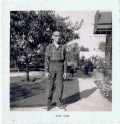Fantasy Writers: 10 Secrets For Naming Your Fantasy Lands & Characters

Fantasy is my favorite genre to write, because I love to create worlds -and words - that are entirely my own. Readers often ask me where in the world I come up with my world-building - in particular, my names. As an avid reader of fantasy novels, I'm no stranger to strange names, and I love inventing new ones for my own books, every day. But not every original name works, and it's important that the fictional names and locations in your novel don't overwhelm your readers. For that purpose, I'm here to share my ten secrets to naming people and places in a fantasy novel.
C.K. Brooke's Ten Secrets For Creating Fantasy Names
#1. Make them easy to read.
What appears to me as the biggest pitfall of trying to invent a name is going too "out there". Some readers are already leery of a name they don't recognize. So it might further alienate readers if said name has lots of "x"s and "q"s and is eleven letters long. Whatever you choose, make sure it's easy on the eyes and doesn't constantly distract the reader or take them out of the story in its oddness.
#2. Make them intuitive to pronounce.
My mother always tells me that if she can't pronounce the names, she won't read the book. I try to ensure the pronunciation of a name I invent is fairly intuitive at first glance. Of course, almost any name can be mispronounced somehow. But it's less likely to happen with shorter, more straightforward names.
#3. Have them resemble a common name.
I try to use common names, except with one letter changed or rearranged, giving it a slightly different accent or pronunciation. (For example, in the His Dark Materials trilogy, Philip Pullman names his protagonist "Lyra." Sort of like Laura, but not.) This cues that we're in an alternate world... but one with which the reader can still identify.
#4. Keep a journal.
I keep a "notes" page up on my smartphone, in which every time I see, hear or think up a name I love, I type it. This has saved me hours of struggling to invent or remember names, come the times when I'm sitting at the keyboard. I keep separate lists of male names, female names, surnames and places. You never know where and when the inspiration for a good name will hit. And you don't want to forget it when it does.
#5. Keep accents to a minimum.
A single, simple accent mark (ä, é), can transform a name beautifully, and transport the reader to a whimsical new place and time. But too many accents can be confusing and an eyesore. I try to use accents sparingly, as in one per name, and not in too many names. Sometimes they're necessary for stressing an otherwise ambiguous pronunciation. Sometimes they just provide the right flare to make the text feel more authentic.
#6. Embrace happy accidents!
I remember reading once that Neil Gaiman accidentally typed the name Coraline when he meant to type Caroline. Instantly, he knew Coraline was the right name. Happy accidents - typos, misheard names - can be great.
In high school, I overheard what I thought was the name "Dainy." I remember being struck by it. But then, I realized I'd misheard; the person had really said Janie. But I thought, "Interesting. I like Dainy better. If I ever write a novel someday, that's going to be my main character's name." And then, seven years later, it was!
#7. Nicknames are key.
It's okay if you have a more exotic or complicated name you really want to use... if it can be shortened to a simpler, recognizable nickname. For instance, the main characters in my book, The Duchess Quest, have the formal names: Eludaine, Macmillan, Boslon and Jonwal. But throughout the novel, they mainly go by Dainy, Mac, Bos and Jon, respectively. This allows me to seize the best of both worlds; I can be creative and keep it simple at the same time.
#8. Be inspired by real places.
Almost all of the place names I use are play-on-words or derivatives of real place names. The places I invent don't always resemble the country that inspired the name (though sometimes they may). In this way, I feel the name will be easily and instantly identifiable to the reader as a place (as opposed to a character or term). With my latest projects, I've taken to combining real words (i.e. Backshore, Wintersea). Instantly recognizable, yet oozes the fantasy element. And don't forget, it's always suitable to end a place name with "-land" or "-ia."
#9. Let the meaning be inherent in the name of the fantasy object.
One of the countless things I love about the Harry Potter series is that the majority of Rowling's spells aren't just mumbo jumbo, made-up words. They are based off of real Latin words. And someone with a little bit of background in Latin (or other Romance languages) can derive the meaning simply from reading the incantation.
I think it's extremely helpful to readers when the meaning of a new fantasy word can be derived from its name alone. That way, readers don't have to keep checking a glossary, or be distracted from the flow of the story by trying to remember what your new terms mean. When I introduce a fantasy object or technology, I try to keep the word as close to its earthly counterpart as possible. For example, when I felt dynamite was too modern a word for my first book, I made my own version - dynami. Needs little explanation; people will instantly gather what it is, and won't need to be reminded down the road.
#10. Sometimes, they just pop into your head!
Fully formed! These are the ones that are meant to be. Some of my characters' names - including my favorite, Jon Cosmith - occurred to me this way, out of the blue. Find the easiest, most intuitive way to spell it - and go with it!
© 2015 CK Brooke








